
JOURNAL OF APPLIED TOXICOLOGY
Scope & Guideline
Innovating Toxicology Research for a Safer Tomorrow
Introduction
Aims and Scopes
- Toxicological Mechanisms and Pathways:
Research examining the biochemical and molecular mechanisms underlying toxicity, including oxidative stress, apoptosis, and inflammation, particularly in response to environmental pollutants, drugs, and nanomaterials. - Risk Assessment and Safety Evaluation:
Studies aimed at assessing the safety and potential health risks associated with exposure to chemicals, pharmaceuticals, and environmental toxins, often employing in silico modeling and quantitative risk assessment methods. - Nanotoxicology and Material Safety:
Investigations into the toxicological effects of nanomaterials, focusing on their interactions with biological systems and potential implications for human health and the environment. - Developmental and Reproductive Toxicity:
Research exploring the effects of toxic exposures on reproductive health and developmental processes, highlighting the implications for both human health and ecological balance. - Ecotoxicology and Environmental Impact:
Studies assessing the impact of pollutants on ecosystems, including aquatic and terrestrial models, to understand the broader implications of toxic exposures in environmental contexts. - Innovative Testing Methods:
Development and validation of novel in vitro and in vivo testing methodologies to improve the predictive capacity of toxicological assessments, including the use of organ-on-a-chip technologies.
Trending and Emerging
- Nanomaterials and Nanotoxicology:
Research on the safety and toxicological effects of nanomaterials is rapidly increasing, driven by their widespread use in various industries and the need to understand their unique interactions with biological systems. - Environmental and Ecotoxicological Impacts:
There is a growing emphasis on the environmental impacts of pollutants, particularly concerning microplastics and their toxicological effects on aquatic life, reflecting heightened awareness of ecological health. - Machine Learning and Computational Toxicology:
The application of machine learning techniques to predict toxicity and assess chemical safety is on the rise, as researchers seek to leverage big data for more efficient and accurate risk assessments. - Endocrine Disruption and Reproductive Toxicity:
Increased attention is being paid to the effects of endocrine-disrupting chemicals on reproductive health, with a focus on understanding mechanisms and long-term consequences of exposure. - Integrated Approaches to Testing and Assessment (IATA):
The adoption of integrated testing strategies that combine in vitro, in silico, and in vivo data is trending, promoting a more comprehensive understanding of chemical toxicity and risk. - Public Health and Occupational Toxicology:
Research focusing on the impact of environmental toxins on public health, particularly in occupational settings, is gaining momentum, reflecting societal concerns about exposure risks and health outcomes.
Declining or Waning
- Traditional Chemical Toxicology:
Research focused solely on traditional chemical agents has declined, as there is a growing emphasis on the effects of complex mixtures and environmental interactions rather than isolated chemical assessments. - In Vivo Animal Testing:
The journal has seen a decrease in studies relying exclusively on traditional in vivo animal testing methods, reflecting a broader trend towards alternative testing strategies that reduce animal use and enhance human relevance. - Single Endpoint Toxicity Assessments:
There is a waning interest in studies that focus on single endpoints of toxicity, such as mortality or a single biochemical marker, as researchers increasingly adopt more holistic approaches that consider multiple biological outcomes. - Historical Toxicology Reviews:
The publication of retrospective reviews on historical toxicological data has diminished, as the focus has shifted towards contemporary research and emerging contaminants, particularly those related to nanomaterials and novel chemicals.
Similar Journals
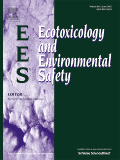
ECOTOXICOLOGY AND ENVIRONMENTAL SAFETY
Advancing knowledge at the intersection of toxicology and ecology.ECOTOXICOLOGY AND ENVIRONMENTAL SAFETY, published by Academic Press Inc. Elsevier Science, stands as a premier journal in the field of environmental science, specializing in the intricate relationships between toxic substances and ecological systems. With a commendable impact factor and recognized as a Q1 journal in various categories including Health, Toxicology and Mutagenesis, and Public Health, it consistently ranks among the top publications in Scopus, placing it in the 96th percentile for Medicine and Public Health. Established in 1977, this journal addresses critical issues related to environmental safety and pollution, making it an essential resource for researchers, professionals, and students alike. Although it does not offer an open access option, the journal’s commitment to publishing rigorous and impactful research makes it a vital platform for advancing the understanding of ecotoxicological risk assessments and environmental protection strategies. For those dedicated to the intersection of science and public health, ECOTOXICOLOGY AND ENVIRONMENTAL SAFETY serves as a beacon of knowledge and innovative research.

Toxicology and Environmental Health Sciences
Advancing the Science of Environmental Health and ToxicologyToxicology and Environmental Health Sciences is a peer-reviewed journal published by the Korean Society for Environmental Risk Assessment & Health Science, dedicated to advancing the fields of toxicology and environmental health. With an ISSN of 2005-9752 and E-ISSN 2233-7784, this journal serves as a vital platform for researchers, professionals, and students seeking to explore the intricate relationships between environmental risks and public health. Operating from South Korea, it has a converged years span from 2009 to 2024, and currently holds a respectable Q3 quartile ranking in both Health, Toxicology and Mutagenesis and Toxicology. This positions the journal within a critical space for those invested in understanding and mitigating environmental health challenges. Although not an open-access journal, it continues to foster high-impact research, contributing to a better understanding of toxicological sciences and environmental health dynamics. Engage with the latest findings and discussions that shape this evolving field through the insightful articles published herein, reinforcing its importance as a resource for scholars and practitioners alike.

Current Research in Toxicology
Connecting Theory and Practice in ToxicologyCurrent Research in Toxicology is a pioneering journal published by ELSEVIER that serves as a vital platform for disseminating cutting-edge research in the field of toxicology, spanning from biological impacts to pharmacological applications. With an ISSN of 2666-027X and an impressive Q2 ranking in key categories such as Applied Microbiology and Biotechnology, Health, Toxicology and Mutagenesis, and Toxicology, this journal underscores its commitment to high-quality research and significant contributions to the scientific community. Based in the Netherlands, Current Research in Toxicology aims to bridge the gap between academia and industry by providing rigorously peer-reviewed articles that cover a wide array of topics including novel methodologies, regulatory challenges, and emerging trends within the domain. The journal is accessible through various platforms, making it essential for researchers, professionals, and students eager to stay updated on the latest findings and advancements in toxicology. With a comprehensive focus on integrating theory with practical application, this journal is poised to influence future studies and policies in health and environmental science.
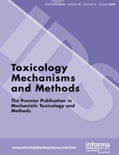
TOXICOLOGY MECHANISMS AND METHODS
Pioneering the future of toxicological science.TOXICOLOGY MECHANISMS AND METHODS is a distinguished peer-reviewed journal dedicated to the advancement of toxicological research, published by Taylor & Francis Ltd. With its ISSN 1537-6516 and E-ISSN 1537-6524, this esteemed journal features critical studies and innovative methodologies in the field of toxicology, aligning with its mission to enhance understanding of biological mechanisms and risk assessment. The journal holds a commendable Q2 ranking in both the Health, Toxicology and Mutagenesis, and Toxicology categories, as well as strong positions in Scopus rankings, reflecting its influence with a 71st percentile rank in Toxicology and a 69th percentile rank in Environmental Health. Researchers, professionals, and students in the toxicology domain will find this journal to be an invaluable resource, offering open access options that foster widespread dissemination of its findings. Since its inception, encompassing converged years from 1991 to 1995 and from 2002 to 2024, the journal remains at the forefront of critical discourse and innovative research methods, making it a vital platform for advancing toxicological science globally.
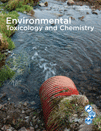
ENVIRONMENTAL TOXICOLOGY AND CHEMISTRY
Unraveling the complexities of environmental health and chemistry.ENVIRONMENTAL TOXICOLOGY AND CHEMISTRY is a premier journal published by Wiley that has established itself as an essential resource for researchers, professionals, and students in the fields of environmental chemistry and toxicology. With a robust trajectory since its inception in 1982, the journal offers critical insights into the interactions between environmental pollutants and biological systems, aiming to advance our understanding of the impacts of toxins on health and ecosystems. Recognized in the top quartile (Q1) of both Environmental Chemistry and Health, Toxicology, and Mutagenesis categories as of 2023, the journal is respected for its rigorous peer-reviewed content and high impact factor. It ranks 33rd out of 148 in Health, Toxicology and Mutagenesis and 48th out of 147 in Environmental Chemistry according to Scopus metrics, placing it firmly within the most influential publications in these fields. Although it does not currently offer open access, the journal remains a vital conduit for disseminating cutting-edge research and innovative methodologies that address pressing environmental challenges.
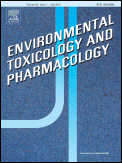
Environmental Toxicology and Pharmacology
Decoding the effects of toxins on living systems.Environmental Toxicology and Pharmacology, published by Elsevier, is a leading journal dedicated to advancing our understanding of the effects of environmental pollutants on biological systems. With an ISSN of 1382-6689 and an E-ISSN of 1872-7077, this journal covers a wide range of studies related to toxicology, pharmacology, and environmental health. The journal is classified as Q2 in key categories such as Health, Toxicology and Mutagenesis and Medicine (miscellaneous), and sits impressively in Q1 for Toxicology, reflecting its strong impact in the field. As of 2023, it ranks #30 out of 133 in Toxicology and #40 out of 148 in Health, indicating its high relevance and contribution to research. While the journal is not currently open access, it remains a pivotal resource for researchers, professionals, and students seeking to explore the intricacies of environmental health effects. Its commitment to publishing high-quality peer-reviewed research positions it as a crucial platform for scientific dialogue and discovery.
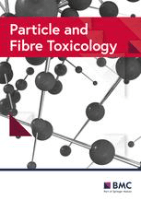
Particle and Fibre Toxicology
Pioneering insights into particulate and fiber toxicity.Particle and Fibre Toxicology is a leading open-access journal dedicated to advancing the field of toxicology, specifically focusing on the health impacts of particulate matter and fibers. Published by BMC since 2004, this journal operates from its offices in the United Kingdom and has gained significant recognition in the scientific community, achieving an impressive impact factor that highlights its relevance and influence. As indicated by its Q1 ranking in various categories including Health, Toxicology and Mutagenesis and Medicine (miscellaneous), it occupies a prestigious position in the academic landscape, appealing to researchers, professionals, and students alike. With a Scopus ranking of #4 in Toxicology and #7 in Environmental Science, the journal ensures high visibility and accessibility, providing a platform for the dissemination of key research findings and innovative methodologies in the interdisciplinary domains of toxicology. Through its commitment to open access, Particle and Fibre Toxicology fosters knowledge-sharing and collaboration, facilitating significant advancements in our understanding of the toxicological effects of environmental agents.
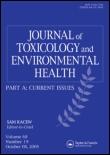
JOURNAL OF TOXICOLOGY AND ENVIRONMENTAL HEALTH-PART A-CURRENT ISSUES
Exploring Contemporary Challenges in ToxicologyJOURNAL OF TOXICOLOGY AND ENVIRONMENTAL HEALTH-PART A-CURRENT ISSUES, published by Taylor & Francis Inc, stands as a key resource in the interdisciplinary field of toxicology and environmental health. Operating under the ISSN 1528-7394 and E-ISSN 1087-2620, this journal maintains a strong presence with a Q2 category ranking in Health, Toxicology and Mutagenesis and a Q3 ranking in Toxicology as of 2023. It aims to disseminate critical findings that address contemporary issues in toxicology and environmental health, emphasizing the implications of environmental agents on human health. The journal offers both subscription and open access options, making cutting-edge research accessible to a diverse readership. With coverage of key topics from 1998 to 2024, it is an essential platform for academics, professionals, and students seeking to stay at the forefront of environmental health sciences.
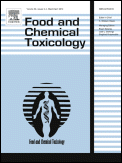
FOOD AND CHEMICAL TOXICOLOGY
Championing research that protects consumers and environments.FOOD AND CHEMICAL TOXICOLOGY, published by Pergamon-Elsevier Science Ltd, is a prestigious journal with a significant impact in the fields of food science, medicine, and toxicology, reflecting its Q1 and Q2 quartile rankings in various categories as of 2023. Established in 1982, this journal continues to serve as an essential platform for disseminating high-quality research focused on the toxicological assessment of foods and chemicals, aiming to advance knowledge that affects public health and safety. With a pivotal role in integrating diverse disciplines, including pharmacology and agricultural sciences, the journal ranks impressively within the top percentiles—specifically 95th in Toxicology and 92nd in Food Science on the Scopus metrics. Though it operates on a traditional subscription model, the journal is committed to providing valuable insights and findings to researchers, professionals, and students across the globe, making it a vital resource in the ongoing discourse around food safety and environmental health. Its comprehensive scope underscores its importance in shaping evidence-based policies and practices.
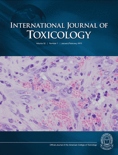
INTERNATIONAL JOURNAL OF TOXICOLOGY
Bridging Research and Practice in Toxicology.The International Journal of Toxicology, published by SAGE Publications Inc, serves as a cornerstone of scholarly research in the field of toxicology, with an established history dating back to 1982. This esteemed journal, ISSN 1091-5818 and E-ISSN 1092-874X, functions within the Q3 quartile in Toxicology, ranking 94 out of 133 in the Pharmacology, Toxicology and Pharmaceutics category per Scopus metrics, reflecting its commitment to advancing scientific understanding in this critical area. The journal not only aims to disseminate high-quality research but also encourages open access to vital studies, thus fostering collaboration and innovation among researchers, professionals, and students alike. With a focus on various aspects of toxicology, including but not limited to environmental, clinical, and molecular toxicology, the International Journal of Toxicology is dedicated to bridging gaps in toxicity research and promoting safe practices across numerous disciplines. As it converges towards 2024, the journal continues to play a vital role in shaping the discourse surrounding the implications of exposure to toxic substances in human health and the environment.